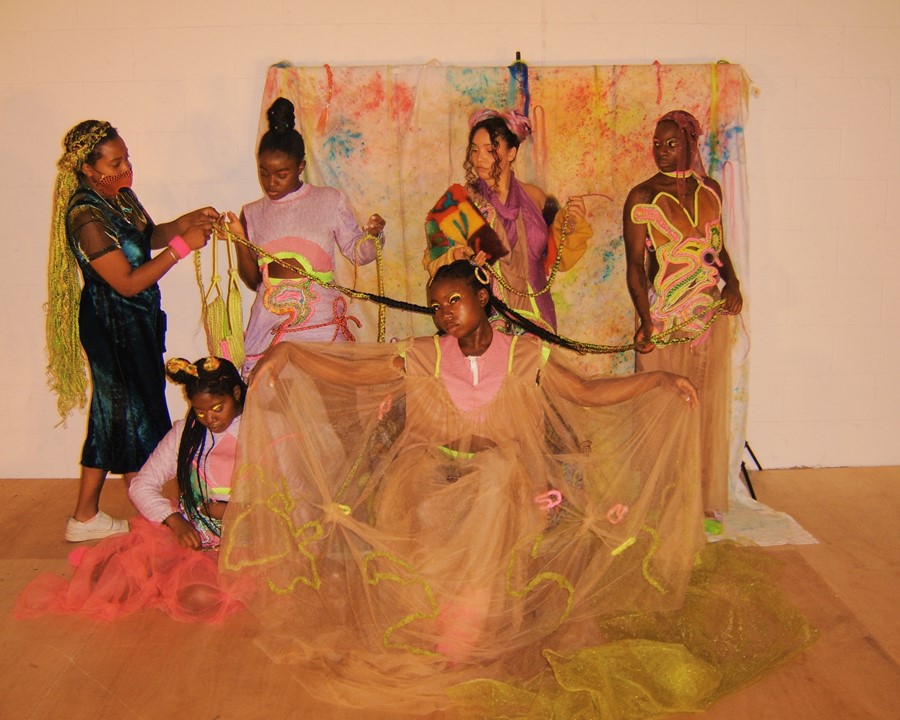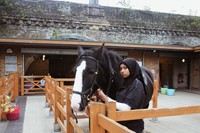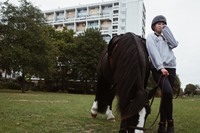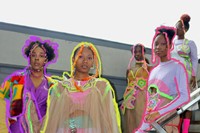In a collaboration with students at Central Saint Martins, Christopher Kane is pushing for more diverse voices in fashion
Sparked by the protests and a global reckoning with the systemic racism that penetrates our society, PLATFORM was born out of a need and a desire to take action. Already having a good relationship with Judith Watt, fashion historian and Fashion Journalism course leader at Central Saint Martins, Christopher and Tammy Kane set about working with Watt and students with diverse, inclusive and engaging perspectives within fashion, culture and the world at large.
PLATFORM is the result of this collaborative effort. A monthly digital zine that riffs on The F Word (the students’ monthly magazine) is broadcast onto Christopher Kane’s main Instagram account. The students have full access, control and support from Christopher Kane and his team.
“In collaboration with the BAME students from Central Saint Martins’ BA Fashion Journalism, Fashion Communication & Promotion and the team behind The F Word magazine, PLATFORM is here to support young Black creatives and ethnic minorities within the fashion community through action. For as long as we can remember, inequality, discrimination and under-representation have been at the heart of the elitist fashion industry. It is time that ‘cancel-culture’ stopped overshadowing the voices of those doing some good, and that attention is placed on celebrating the diverse and inclusive talents paving the way for future generations,” say its members.
Here, we catch up with Hannah Karpel and Yelena Grelet, the co-editors, to discuss all things PLATFORM and the future of fashion journalism.
C L Mayers: How did the collaboration with Christopher Kane come about and what are its intentions?
Hannah Karpel: We were approached by Christopher and Tammy Kane to lead this project through our tutor and course leader of BA Fashion Journalism at Central Saint Martins, Judith Watt. The Kanes have been good friends with Judith for a long time and have also been supporting students on our course through PR internships over the years. Following the Black Lives Matter protests sparked by George Floyd’s death, Christopher and Tammy knew they wanted to do something to support young BAME fashion students. In comparison to opportunities for fashion design students, there is very little that goes to young fashion journalists, particularly those who are BAME. The intention of PLATFORM became an opportunity to celebrate the work of young BAME fashion journalists coming together to edit and produce a digital publication without any limitations.
CLM: What are your own personal objectives for PLATFORM and why is it important to you as young people?
HK: I hope to continue celebrating exceptional creative people within the fashion industry who are actively making a change and using their individuality as their asset. I want to keep PLATFORM honest. The conversations we have with those we interview should challenge and question. You never know what you may discover or who you may inspire. Perspectives are key. The world is so much bigger and more beautiful than you think, and if you can listen to someone else and understand a part of their experience and culture, then you can start to truly appreciate life.
Yelena Grelet: While as a fashion journalism student I can share my writing, my objective is to also share the works of others in hopes of them receiving wider exposure. I have felt so passionate and connected to PLATFORM as a young aspiring fashion journalist to have my voice be heard and be given this opportunity during such bleak times where many, particularly young students, are currently struggling.
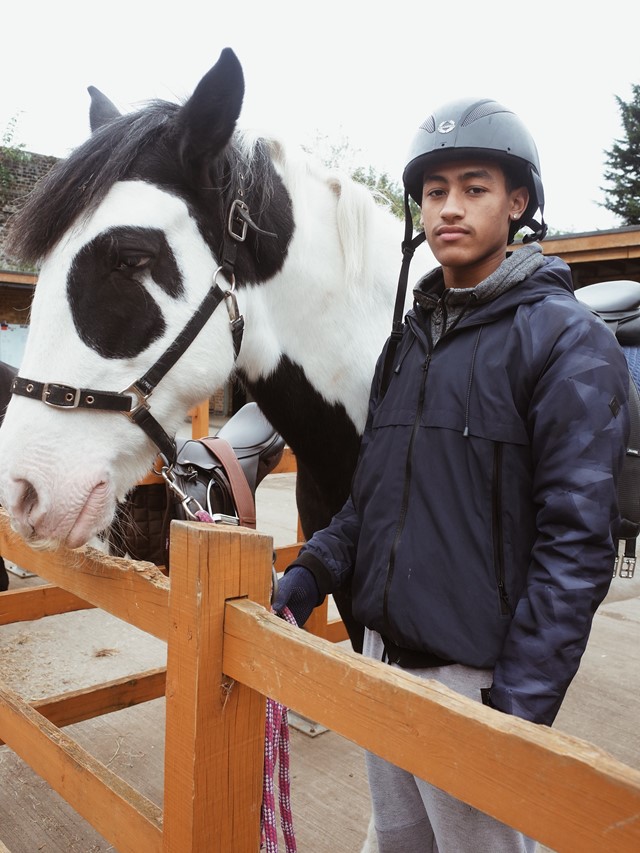
CLM: What type of content should we be expecting from PLATFORM and on The F Word?
HK: The way we have come to summarise The F Word is as ‘Young Voices, New Attitudes’. Each issue of The F Word is based on a different ‘F’ word. This one is appropriately named ‘Furious’, because, well ... we are. Written by both students and alumni from our BA Fashion Journalism course, we share the opinion of many in similar situations. Due to the pandemic, unemployment rates have rocketed and it’s not like we can go and drown our sorrows in the club or get drunk at a house party. It has been an infuriating time. The graduate students not only completed their degrees in lockdown but now they don’t get a graduation and more importantly, don’t have a job waiting for them. Expect investigation, criticality, objectivity, broadcast and a whole lot of dark humour – because boy do we need it.
CLM: As young people working towards graduation and entering the industry, are you excited or are things daunting? Why?
YG: Hannah and I are both on our placement years and have been lucky enough to be able to focus on PLATFORM and not have to worry so much about internships. However, I would be lying if I said that I wasn’t worried about finding a post-graduate job not only as a young female graduate but as a female graduate of colour. I prefer to remain optimistic and hope that the fashion industry will create and offer many more opportunities for the younger generation.
HK: It’s bloody terrifying! I look at our friends who have just graduated and left with no job and thousands of pounds of debt and surprisingly that doesn’t appeal to me very much. Of course, I cannot wait to finally be working on live projects, to see my writing and work in print and to meet new people and collaborate but I would be lying if I said everything felt hunky-dory.
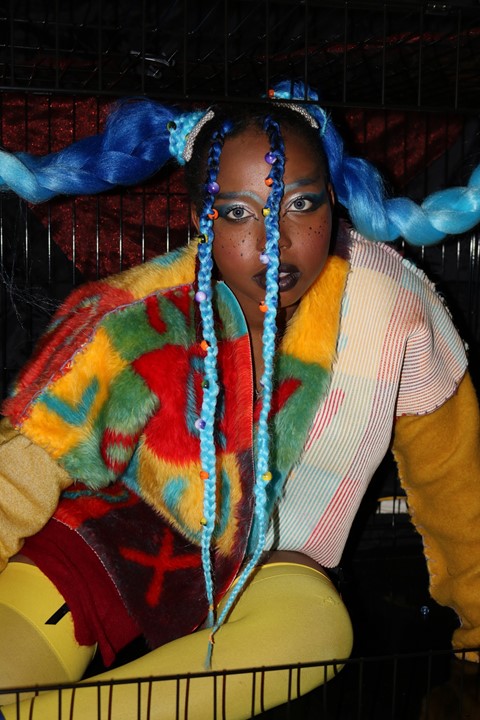
CLM: What do you think is missing in fashion right now and what do we have too much of?
YG: What’s missing is authenticity within the fashion industry. We’re lacking a diverse mixture of talented and forward-thinkers from different ethnic backgrounds, sexualities et cetera. It isn’t an accurate reflection of the times we’re currently living in.
HK: I think fashion has a class problem. We all know it is very elitist but this all boils down to opportunities. The unpaid internships have got to go. Only those who can afford to work full time unpaid will apply for the internship and therefore, only they will get the job, excluding an entire group of talented people who simply cannot afford that foot in the door.
CLM: How can the industry better serve those who are not afforded equal opportunities?
HK: Look beyond the recommendation of your colleague’s daughter. I think because of how much students want a job at the moment that employers know if one person won’t work unpaid for a month that they can easily find someone else who will but this is my point. Employers should be willing to mentor students when they start, listen to them. Where are you advertising? Are you already closing the door because you are only opening it to one limited group? In my opinion, opportunities start in school. So many kids don’t know half the jobs that are available in the fashion industry and what they would need to do to get there.
CLM: What is the future of fashion journalism?
YG: Whether it’s print or digital, fashion journalism will always be here to stay. As we’re living in the digital age, many feel like influencers are dominating the realm of fashion but fashion journalists hold the power of being great storytellers and critical writers. That is what is keeping fashion journalism alive and exciting.
HK: The future of fashion journalism is a very exciting one. During this apocalyptic time, it is clear how fashion journalists have come together to support each other and adapt. Fashion journalism itself is exactly that, adaptable. From how we live to how we dress, there are so many layers and ways to execute this. I do believe fashion journalism is changing. In my opinion, it starts with the young writers on The F Word and PLATFORM but I would say that!
